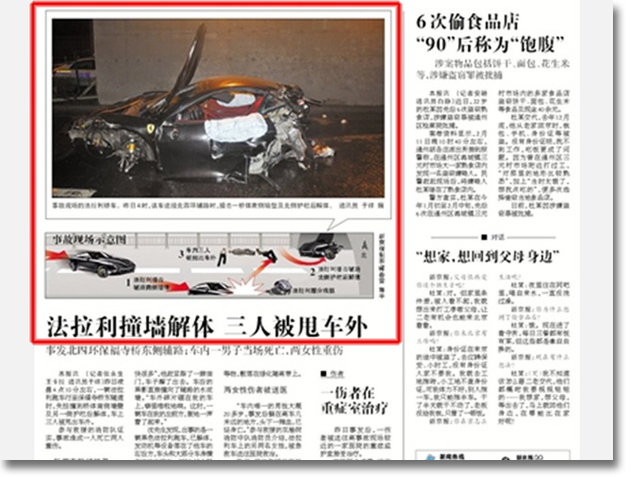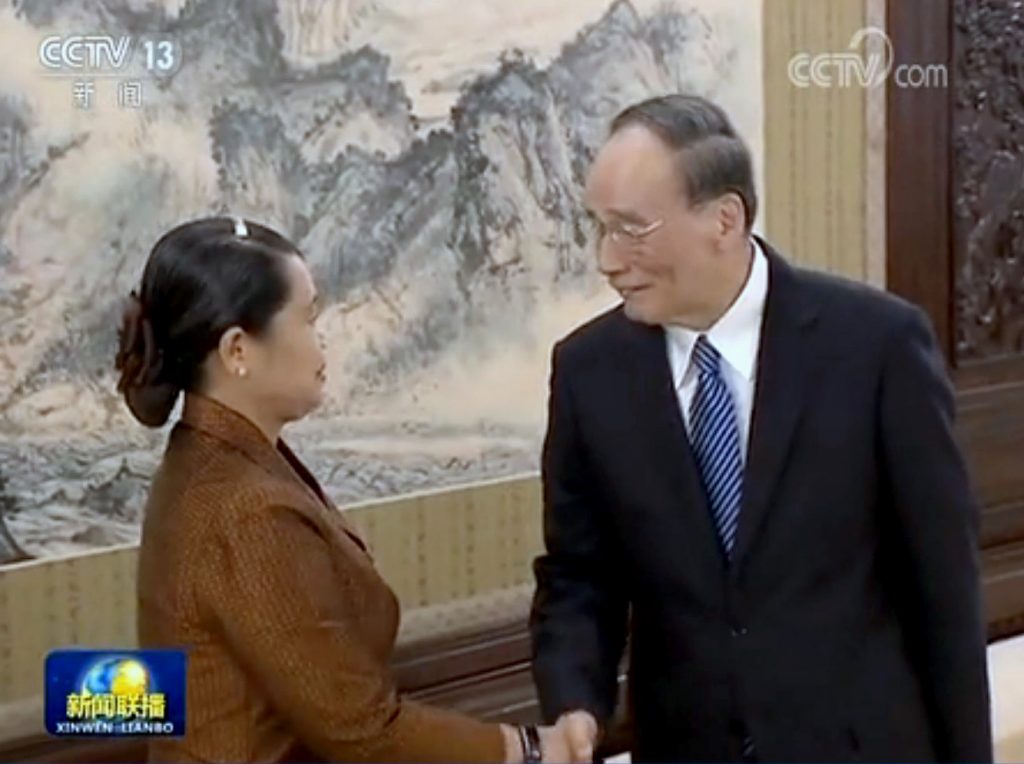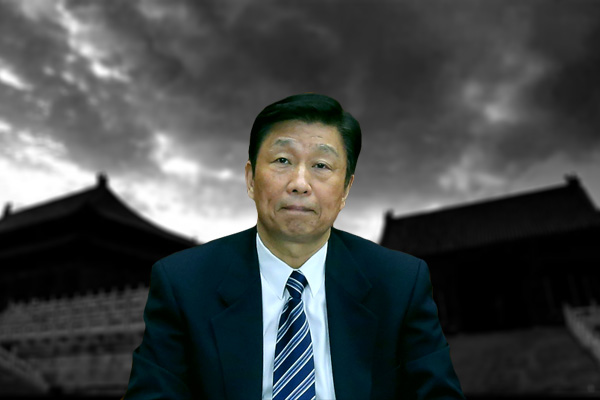◎ The vice presidency has emerged as a focal point in an intense factional struggle (neidou) in the upper echelons of the Chinese Communist Party.
By Don Tse
China will unveil a new crop of national-level leaders at the Two Sessions meeting in March. Typically, observers give the most attention to the vice premiers who oversee the Chinese economy and financial sector. This year, the vice presidency is arguably the most crucial position to watch for those seeking to better gauge the strength of the Xi Jinping leadership and China’s future directions.
On paper, the vice presidency is a largely ceremonial state position. In the past decade, however, the vice presidency has emerged as a focal point in an intense factional struggle (neidou) in the upper echelons of the Chinese Communist Party (CCP). In this article, I examine the changing function and importance of the vice presidency, why the position was marginalized during Xi Jinping’s first term, and why the vice presidency may again become a central office in Xi’s second five-year tenure.
Party ‘Crown Prince’
The Chinese vice presidency is a position whose prominence at any time is entirely dependent on other political variables. Being a state office, the Chinese vice presidency has very little actual power in China’s parallel system of government. Party posts always outrank their analogous state counterpart, and vice presidents are typically only as prominent as the Party positions they hold. For instance, vice presidents in the past two decades have sat on the elite Politburo or its Standing Committee and were tasked with leading key policy groups that deal with foreign affairs or autonomous regions (Hong Kong and Macau).
Party post aside, vice presidents can be extra important if they are “crown prince-in-waiting” to the top CCP leadership. The most recent CCP General Secretaries, Hu Jintao and Xi Jinping, both served as vice presidents after they were designated as Party leader successors by their predecessors (Deng Xiaoping picked Hu, Jiang Zemin picked Xi).
The vice presidency reverted to a ceremonial role at the 18th Party Congress in 2012 as seen from the political fate of Li Yuanchao. Li was appointed deputy leader of the Foreign Affairs Leading Group and the Central Coordination Group for Hong Kong and Macau Affairs, but failed to make the Politburo Standing Committee. As per Party norms, entry into the Politburo Standing Committee is a prerequisite for future Party leaders. Li was sidelined during this vice presidency, and also failed to make the new 204-member Central Committee at the 19th Party Congress. After the 19th Congress, Li conspicuously failed to attend high-profile meetings with foreign dignitaries like United States President Donald Trump and French president Emmanuel Macron. Li’s unusual absence and exclusion from China’s elite leadership body indicate that he is headed for retirement in March.
‘Ousted Crown Prince’
Xi Jinping marginalized the vice presidency during his first term very likely because of Li Yuanchao’s political connections and his status as an “ousted crown prince,” or former candidate for Party leader.

Heir to the CCP leadership is arguably the riskiest designation for a Chinese official. Mao Zedong’s three handpicked successors were all disposed of, and two of them even met with grisly ends (Liu Shaoqi was arrested, tortured, and died in detention covered in his excrement; Lin Biao died in a fiery plane crash). Meanwhile, Deng Xiaoping’s first two chosen successors, Hu Yaobang and Zhao Ziyang, were ousted after they expressed liberal views. Li Yuanchao, one of the candidates in consideration to succeed Hu Jintao, is the latest casualty of complex, chaotic, and consequential CCP factional infighting. A brief overview of the intricate political episode and the operations of the CCP regime follows.
The CCP propaganda apparatus has in recent years become adept at crafting an image of a Party leadership that is “united” and “stable,” and depicting leadership succession as an amicable, orderly “transition.” The political reality is far removed from propaganda. Being an authoritarian and openly atheist regime, the CCP eschews traditional Chinese political succession concepts like the “mandate of Heaven” or Western ideals like liberal democracy. The result is a perpetual legitimacy crisis for the CCP regime and a fiercely contested internal power struggle around the period of leadership renewal.
 One such leadership succession struggle developed around the 17th Party Congress period. Because Deng picked Jiang Zemin’s successor, Jiang felt that he too should have a say in deciding the candidate who would succeed Hu Jintao. According to many observers at the time, Jiang’s favorite to replace Hu was Chen Liangyu, the former Shanghai Party boss. But Hu, who was largely a puppet in his first term in office due to Jiang’s political maneuvering, ordered a probe against Chen a year before the crucial 17th Congress reshuffle in 2007. Hu favored a “Double Li” leadership team of Li Yuanchao as Party General Secretary and Li Keqiang as premier, according to reports in the overseas Chinese language press. Jiang, however, vetoed Hu’s choice of “crown prince” and instead picked Xi Jinping.
One such leadership succession struggle developed around the 17th Party Congress period. Because Deng picked Jiang Zemin’s successor, Jiang felt that he too should have a say in deciding the candidate who would succeed Hu Jintao. According to many observers at the time, Jiang’s favorite to replace Hu was Chen Liangyu, the former Shanghai Party boss. But Hu, who was largely a puppet in his first term in office due to Jiang’s political maneuvering, ordered a probe against Chen a year before the crucial 17th Congress reshuffle in 2007. Hu favored a “Double Li” leadership team of Li Yuanchao as Party General Secretary and Li Keqiang as premier, according to reports in the overseas Chinese language press. Jiang, however, vetoed Hu’s choice of “crown prince” and instead picked Xi Jinping.
Jiang preferring Xi to Li may seem puzzling in considering their factional background. Li has a long, personal history with the Jiang faction: He was born in Jiangsu, the home province of Jiang Zemin and former top Jiang faction elite Zhou Yongkang. Li Gancheng, Li Yuanchao’s father, was friendly with Zeng Shan, the father of Jiang faction number two Zeng Qinghong. Li Yuanchao was also appointed Party secretary of Jiangsu (2002-2007), a province where the Jiang faction has a strong presence, and head of the then-Jiang faction controlled Organization Department (2007-2012). Without having close ties with the Jiang clan, it is unlikely that Li would be entrusted with the positions of Jiangsu chief or Organization Department head. In contrast, Xi Jinping and his family were not close to the Jiang clan, and Xi himself was not obviously aligned with any Party faction. At a glance, Li appeared to be the more obvious choice as successor to the Party leadership and the Jiang faction.
The workings of factional politics, however, are less straightforward than appearances suggest. CCP cadres form factions when they feel the need to join forces to preserve or advance their self-interests. And during crunch time, cadres often seek to protect their self-interests over their faction’s if there is a clash in obligations. Likewise, factions sacrifice or promote individual members or associates to ensure its integrity and survival. We see this dynamic in action in the case of Li Yuanchao.

In 2007, Jiang Zemin had no incentive to pick Li as Hu Jintao’s successor. First, Li was Hu’s choice, which immediately made lowered his odds of being selected by Jiang since friction was forming between Jiang and Hu over the purge of former Shanghai chief Chen Liangyu. Next, Li had pursued administrative and political reform when he headed Jiangsu Province, as well as an anti-corruption campaign. Li’s policies marked him as ambitious and dangerous to Jiang, who preferred a low-key personality who would be easy to control when installed as Party leader as opposed to a slick political operator who might expose the Jiang faction’s corruption and severe human rights abuses if doing so furthered his interests. Finally, Jiang preferred protégé Bo Xilai, the former Chongqing chief and Politburo member who proactively participated in Jiang’s bloody persecution campaigns. Because Bo still had to climb the Party ranks to be an eligible candidate for CCP leader, Jiang nominated Xi Jinping as a compromise candidate. Until he was designated “crown prince,” Xi had been flying under the radar for most of his career and had no major accomplishments—just the sort of official who Jiang presumed he could comfortably control or oust early to make way for Bo. (U.S. officials learned of the Jiang faction coup plot in 2012 when Bo’s lieutenant Wang Lijun tried to defect at an American consulate; in an earlier article about a possible failed coup in 2017, I explained the 2012 coup and its rationale in greater detail.) After Li Yuanchao failed to assume the posts that would identify him as the next CCP leader at the 17th Party Congress, Chinese commentators started referring to him as an “ousted crown prince.”

The tumultuous political events of 2012, factional politics, and Li’s political ambitions effectively finished Li’s career. Bo Xilai’s arrest after the Wang Lijun incident meant that the Jiang faction had to start looking again for a new candidate to supplant Xi in the event of a coup. The Jiang faction was already familiar with Li, and there emerged a distinct possibility that he might be persuaded to take up the Bo role of coup chief. Concurrently, Li appeared to be scheming with Hu Jintao’s former top aide Ling Jihua to secure Politburo Standing Committee slots for themselves at the 18th Party Congress. Ling, however, was embroiled in controversy before the 18th Congress when he tried to cover up his son’s scandalous car crash, and Li became politically “toxic” by association. Li Yuanchao ultimately failed to make the Politburo Standing Committee at the Party Congress and seemed to have been bypassed by the Jiang faction for the role of “Bo Xilai 2.0” (that dubious honor belongs to ousted Chongqing chief Sun Zhengcai). His activities and duties as vice president also indicated that Xi Jinping had him sidelined.
Speculation that Xi was investigating Li kept surfacing throughout the latter’s vice presidency. Li once publicly denied the allegations in 2015, but the rumors were never quelled. Near Christmas 2017, I learned from sources that Li was being held in shuanggui, an informal detention system which the CCP uses against cadres who are suspected of violating Party discipline. Li would later make an appearance at a new year tea party but under very unusual circumstances. Seated beside him were CMC vice chairman Xu Qiliang and Central Committee for Discipline Inspection deputy secretary Yang Xiaodu, an irregular arrangement that adheres neither to Party or state ranking. After the tea party, Li continued his no-show at high-key events.
Li Yuanchao’s retreat from the public scene bodes ill for his political future. In the best case scenario, Xi allows Li to step down as vice president at the Two Sessions in March and enjoy a quiet retirement if he promises to stay out of factional politics. If Li creates trouble for Xi, then he is in danger of being investigated on charges of corruption or political disloyalty. And in the scenario where Xi feels the need to bring in a new vice president before the Two Sessions, Li could be retired early for “health reasons” or other plausible alibis if he dissociates himself from Xi’s rivals, or arrested if Xi feels particularly threatened or unsure about Li’s allegiances.
Vice president to become ‘Secretary of State’?
Xi Jinping may be keen on appointing a new vice president early in light of increased pressure from the United States. The Trump administration has announced a national security strategy and a national defense strategy that identifies China as a “competitor” and seeks to counter CCP subversion and expansion over the long-term. Meanwhile, the U.S. is becoming increasingly hawkish on trade with China, with Trump promising to announce a “very big intellectual property potential fine” and talk trade action against China in his first State of the Union address. As trade war with the U.S. looms, Xi will need a trusted and dependable vice president who can represent him in dialogue with top American officials and smooth Sino-U.S. relations.
Wang Qishan, Xi’s top ally and former anti-corruption chief, appears to be a front-runner for the vice presidency. When Wang started meeting foreign dignitaries in September 2017—an unusual move for a Party anti-corruption chief with no state office—I analyzed that Xi could make Wang the new vice president. In October, I noted that Wang could be handed a diplomatic portfolio and play a role similar to the U.S. Secretary of State. After the 19th Congress, several news media cited internal sources as saying that Wang would be appointed vice president and tasked with handling U.S.-China relations.

Wang is a solid candidate for the vice presidency on several accounts. First, Wang and Xi have a long friendship (they once shared a blanket during the Cultural Revolution) and Wang appears to be Xi’s most trusted official. Second, Wang has the relevant economic credentials and American connections to serve as Xi’s representative to the U.S. and advise negotiations on trade deals. Third, Wang has a reputation for troubleshooting crises, earning him the moniker of “firefighter-in-chief.” Finally, foreign observers would not mistake Wang for Xi’s successor because he is past the unofficial retirement age for the post of General Secretary and isn’t in the Central Committee.
Should Wang becomes vice president, the ceremonial office will again become prominent, albeit for external affairs instead of domestic politics. Because the vice president’s power is tied to his Party post, Xi could appoint Wang to the Party’s national security commission (a trade war with the U.S. endangers China and is a matter of national security). Being vice president could also increase Wang’s chances of concurrently serving as head of the National Supervisory Commission, the new state anti-corruption body.
Translated by Larry Ong.












